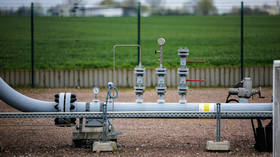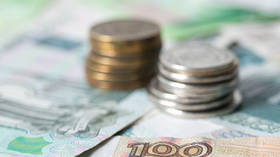German firm meets key demand on Russian gas payment

Germany’s third-largest gas importer, VNG, has agreed to Moscow’s new ruble-based gas payment scheme and opened the necessary accounts with Russia’s Gazprombank to transfer payments, the company said in an emailed statement to Reuters on Monday.
“We will pay the invoice amount, which will continue to be denominated in euros, into the accounts at Gazprombank in accordance with the planned procedure, so that timely payment to our supplier is ensured on our part,” the statement read.
The company added that it expects the conversion into rubles to not cause any difficulties, noting that “the opening of the account went completely smoothly.”
Russia’s new ruble-based gas payment mechanism was introduced on March 31 amid Moscow’s military operation in Ukraine and the resulting Western sanctions. The news puzzled Russian gas buyers, who feared they would be expected to pay for the commodity in rubles. However, it was later clarified that buyers will be able to pay in their currency of choice, but must first set up an account in Russia’s Gazprombank so their payments can be converted into rubles before reaching the gas provider, Gazprom. The measure applies to buyers from ‘unfriendly states’ which placed sanctions on Russia.
European gas buyers are still concerned about the new payment scheme, fearing it could breach the sanctions, but at the same time, many are not eager to cut off Russian gas imports. Several Russian gas buyers have recently signaled that they might be able to comply with Moscow’s requirements. At the end of April, Uniper, a major German importer of Russian gas, said it would be possible to pay for future supplies without breaching sanctions. According to a Bloomberg report, four European countries have already made gas payments to Russia using Moscow’s new ruble-based mechanism, while at least 10 countries have set up ruble accounts in Gazprombank, through which they plan to make payments due at the end of May.
VNG said it is taking all necessary measures to comply with the sanctions law, but also to ensure gas supplies to Germany.
For more stories on economy & finance visit RT's business section













